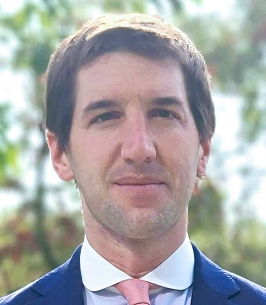[ad_1]

Jose Álvares
Lawyer and CEIBS Executive MBA student
If economics was all about models that could allow us to predict the future of markets, you would ask why the professors of this subject are standing in front of you instead of on a private island sipping away their fortune in countless margaritas. Actually, economics, as a social science, is about looking at people, more precisely, the choices made in relation to the limited resources available. And people can be erratic, thus why in economics you often hear the concept of ceteris paribus, meaning, hypothesizing that all else remains equal (which hardly happens).
You can find economics at play in the most simple daily life situations. For instance, I have an aversion to carrying stuff, so I do not bring water bottles on hikes. It was the case when climbing Mt. Takao in Tokyo, where I noticed the further we went, the costlier was the water – the law of demand (there might be few climbers the higher you go, but also they are more desperate and there is less supply). I giggled at those overpaying for water when they could not take it anymore, to only later find myself paying 10 times the cost of the water at the bottom when I reached the top. But is really overpaying?
All decisions imply trade-offs, meaning, when opting for something, there is always something else that will be forgone. At times, we believe we are making the right choice because we are extracting satisfaction from the outcome, but one should pause to reflect on what the best alternative is that one is missing out on – there is a fancy name to it in economics, it is called opportunity cost. This is especially relevant for businesses when allocating time and money to a given activity.
In the long run, ceteris paribus, profits tend to shrink because, under normal conditions, if one is making a profit, other people will come into your market and chip away at the profit margin. Meaning markets tend to evolve into a structure of perfect competition, which is characterized by the existence of many operators, virtually identical products, inability of one company to control price, no barriers to entry and exit and perfect information.

Your question then is, if that is the case, how come some still make gigantic profits. Well, I do also have some good news, you may also do it, precisely by breaking the above referred characteristics and developing into an imperfect market. Normally, a good example of this is when players seek to differentiate their services / products (even if sometimes it all comes down to a successful marketing campaign) – look at Apple, which was in a rather competitive market (mobile phones), but created a whole new league of its own. But not all such actions to break perfect competitive markets are ideal, such as anticompetitive practices like collusion (some may have heard of the Prisoner’s Dilemma in this regard), and thus the growing importance of preaching ethics in business.
Aside from microeconomics, is worth also looking at macro. Being able to predict economic cycles may prove rather profitable for businesses or even dictate one’s survival – the now infamous fall of the SBV bank was nothing short of a huge misreading of where the economy was heading (which influences the decision by central banks) as management failed to anticipate the rise in interest rates.
For governments to set their policies, they need measurements, and thus we often hear the universally accepted acronym GDP, except probably for Bhutan, where growth is planned based on the gross national happiness. The term might seem enticing, but is it a more accurate way to measure people’s satisfaction? The reality is, countries with higher GDP per capita tend to be where people are most satisfied, simply because their allocation of scarce resources tends to be more efficient than in less developed countries. What one would hope is that we strive to eliminate those differences, as one of the root causes of our current social problems is precisely social inequality.
Unfortunately, this author cannot cover in this short piece all the utterly interesting components of this subject, but the few lines were inspired by Associate Dean and Professor of Economics Bala Ramasamy, from 1988 to 1995 a lecturer in Macau, a place that, as he told this author, he still holds dear. Prof. Bala was appointed to the Management Committee at CEIBS this February – our best wishes.
[ad_2]
Source link
